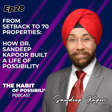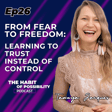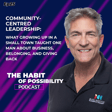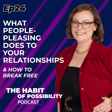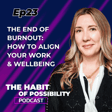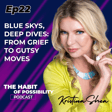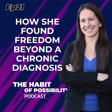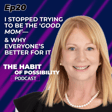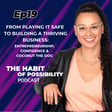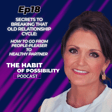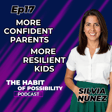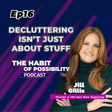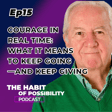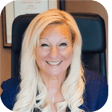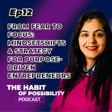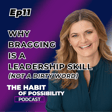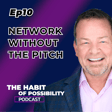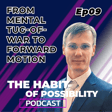
Why Playing It Safe Keeps You Stuck (and What to Do Instead)
What if the thing you're clinging to is the very thing keeping you small? Carmela Tunzi shares how fear and attachment kept her stuck—and what happened when she finally let go.
Many of us stay stuck in jobs, relationships, or roles out of fear disguised as security.
In this episode we explore:
- How Fear Shrinks Your Vision—and Your Possibilities
- Situations Where People Throw Away Money, Time, Effort & Happiness Because They Believe They Have No Choice?
- Sometimes You Have to Let Go to Grow
- Actionable Strategies To Stop Fixating on the Past—& Start Creating the Future
- The Value of Facing the Monster in the Closet
Carmela learned that visualizing even scary possibilities can free you. When you know you’ll be okay no matter what—you stop playing defense and start designing your life.
Carmela Tunzi is the Founder and Owner of Mind Flow Hypnosis, Sherman Oaks Hypnosis located in Los Angeles California, and Desert Sun Hypnosis.
She is one of the Trainers in The Master Hypnotist Society. She also runs a School for Hypnosis Certification and NLP., in the Los Angeles Area.
She runs many in-person and virtual programs, based on the Individual needs of her clients. Carmela was also featured on the episode “I Don’t Want to be a Victim“ of Teen Mom on MTV.
She has been in the hypnosis industry for over a decade and is a trainer for the Master Hypnotist Society.
You can find out more and connect with Carmela here:
https://www.shermanoaks-hypnosis.com/
Follow on Facebook:
https://www.facebook.com/Shermanoakshypnosis/?ref=pages
Follow on Instagram:
https://www.instagram.com/fhypnosis/
We are getting many requests these days for help with managing stress and navigating all of the change happening around us. So, we are offering free Stress Management workshops, both in person at our training facility in Burlington, Ontario Canada, and online via Zoom. Learn more and register here: https://www.hypnosistrainingcanada.com/stress-management-workshop
Learn more about how Robbie Spier Miller’s coaching, training, consulting and speaking opportunities can help you enhance your personal and business performance here:
https://www.hypnosistrainingcanada.com
https://www.mindlinkconsulting.com
Social Media Handles:
@hypnosistrainingcanada
@robbiespiermiller

